The breeding area is scientifically designed, airy, creating conditions for chickens to grow and develop well, ensuring egg production requirements. The model opens up a new breeding direction for local people.
More than 10 types of herbal waste as chicken feed
Mr. Phong said that at first, due to personal needs, he raised black chickens to lay eggs, but after a while, he found that the egg rate of black chickens was low. After learning, he learned that Egyptian chickens are better, and the chicken meat is quite tough, so he decided to raise this breed of chicken. "I have been raising Egyptian chickens for over a year now, currently the number is more than 1,000 chickens, the egg-laying rate is over 70%, the amount of eggs is only enough to supply to acquaintances in Ho Chi Minh City. Customers order in advance, I deliver once a week" - Mr. Van Thanh Phong shared.
Mr. Van Thanh Phong is feeding the chickens.
According to Mr. Phong, one of the characteristics that made him choose this breed of chicken was the chicken's behavior. This breed of chicken has good resistance and survival rate in the wild, and can find food by itself.
During the raising process, he is interested in clean agricultural products. Chickens are fed with fermented microbial bran, and drink microbial water with garlic yeast. In the chicken feed, there are some herbs to help the chickens have resistance. Mr. Phong raises chickens completely without using antibiotics.
In addition to basic nutrients such as corn, soybeans, rice, etc., Mr. Phong also adds 10 types of by-products collected from local herbal production facilities. Ginseng, angelica, and by-products of cordyceps are combined with turmeric, probiotics, and then fermented for 24 hours.
Then, the pellets will be pressed to feed the chickens during the day. The herbal chicken farming model not only helps the chickens increase their ability to absorb nutrients but also makes them naturally healthy. Thanks to that, Mr. Phong saves significantly on the cost of antibiotics and supplements compared to conventional farming.
Herbal waste used as chicken feed.
The water system used for chickens to drink is an automatic system. Mr. Phong uses clean water, combined with probiotic water. Through the above supplementary sources, chickens do not need antibiotics. However, he still gives chickens full vaccinations according to the schedule, age, and disease prevention.
Thanks to his diligence and eagerness to learn, Mr. Phong has equipped himself with more knowledge and techniques for raising this new breed of chicken. According to him, in order for the new batch of chickens to have a high survival rate, to be in good health when they grow up, and to reproduce a lot, the most important step is to select the breed. It is necessary to import the breed from a reputable place to ensure quality.
Building local brands
During the first month, chicks are fed with bran to provide adequate nutrition. After this period, chickens begin to use bran, probiotics and herbs. At about 6 months, chickens begin to lay eggs. When chickens lay eggs for 3 months, the meat quality is best, at which time they are sold as meat.
In the beginning, Mr. Phong bought chickens from the North, then he took the initiative to source chickens locally to develop his flock. Every month, he adds about 500-600 chickens. According to him, the farm will grow larger if he has more land. Currently, his farm harvests about 700 chicken eggs every day.
“The potential of the Egyptian chicken farming model is quite high. The egg production is not enough to supply the market. In the near future, my family will expand the barn area and develop the poultry flock to increase family income.
The price of Egyptian chicken eggs is much higher than the price of regular chicken eggs, about 8 thousand VND/egg. Using herbal feed to raise chickens takes much more time" - Mr. Phong added.
In addition to raising chickens, Mr. Phong also developed a project to raise pigs. Currently, his pig raising project has been approved by the Provincial People's Committee. The scale of the project is 6,000 pigs, but currently his farm only raises more than 3,000 pigs, so Mr. Phong's chicken coop is very airy.
Mr. Phong ensures biosafety and wastewater treatment, especially the biogas wastewater treatment system. Pig manure before entering the biogas tank is separated into solid waste and water, then into the settling tank, then into the wastewater treatment section, treated with microorganisms and chemicals.
Sharing his future plans, Mr. Phong hopes to build the Futifarm brand, associated with the locality. He hopes to be allowed by the local government to rent a large enough area of land to expand the scale.
If you have about 40-50 hectares, you can build a larger chicken farm. You can combine raising chickens and growing fruit trees to increase your income. Substandard fruit can be used as chicken feed.
Ms. Le Thi Ngoc Thuy - Vice President of Tan Chau District Farmers' Association said that the locality continues to encourage, motivate and maintain economic models that are operating effectively in the area.
In addition, the Standing Committee of the District Farmers' Association and communes and towns also regularly propagate and mobilize cadres and farmer members to raise awareness of the role and position of economic models, especially collective economy, associated with the implementation of the National Target Program on new rural construction.
According to the Tan Chau District Animal Husbandry and Veterinary Station, in recent years, the locality has been considered a destination for many high-tech livestock projects. However, household livestock farming still accounts for a high proportion.
In the context of small-scale livestock farming facing many difficulties due to pressure from large farms and fluctuating markets, choosing specialty breeds is becoming a smart direction, helping many livestock farming households develop stably and effectively.
Mr. Phong's model of raising Egyptian chickens for eggs, in addition to bringing economic value, also contributes to reshaping agricultural production habits. Dare to invest, dare to change thinking, and take community health as the center is opening a new direction for the local livestock industry - towards developing circular, sustainable and environmentally responsible agriculture.
Hoang Yen - Nhi Tran
Source: https://baotayninh.vn/doc-la-giong-ga-nuoi-bang-thao-duoc-a189781.html


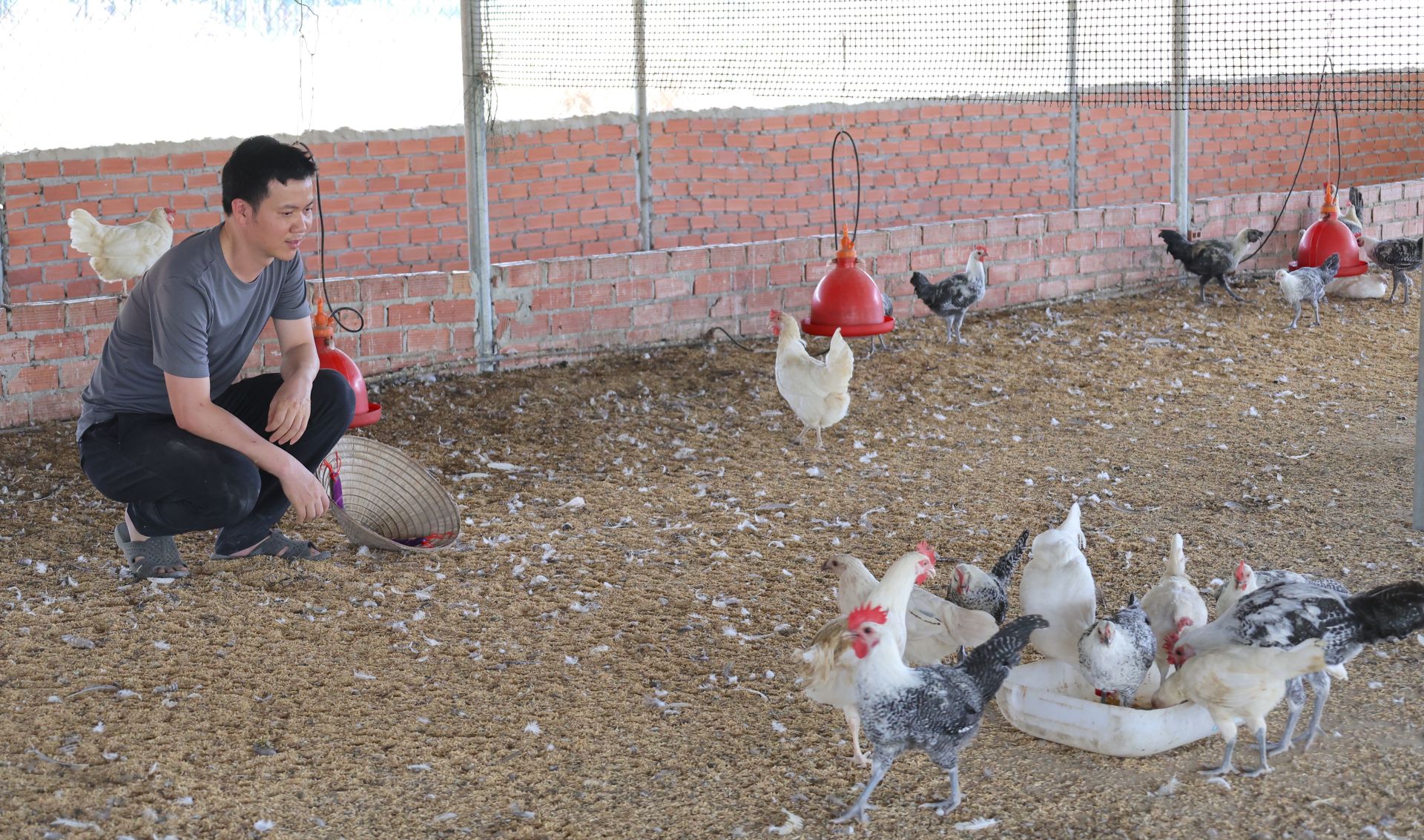
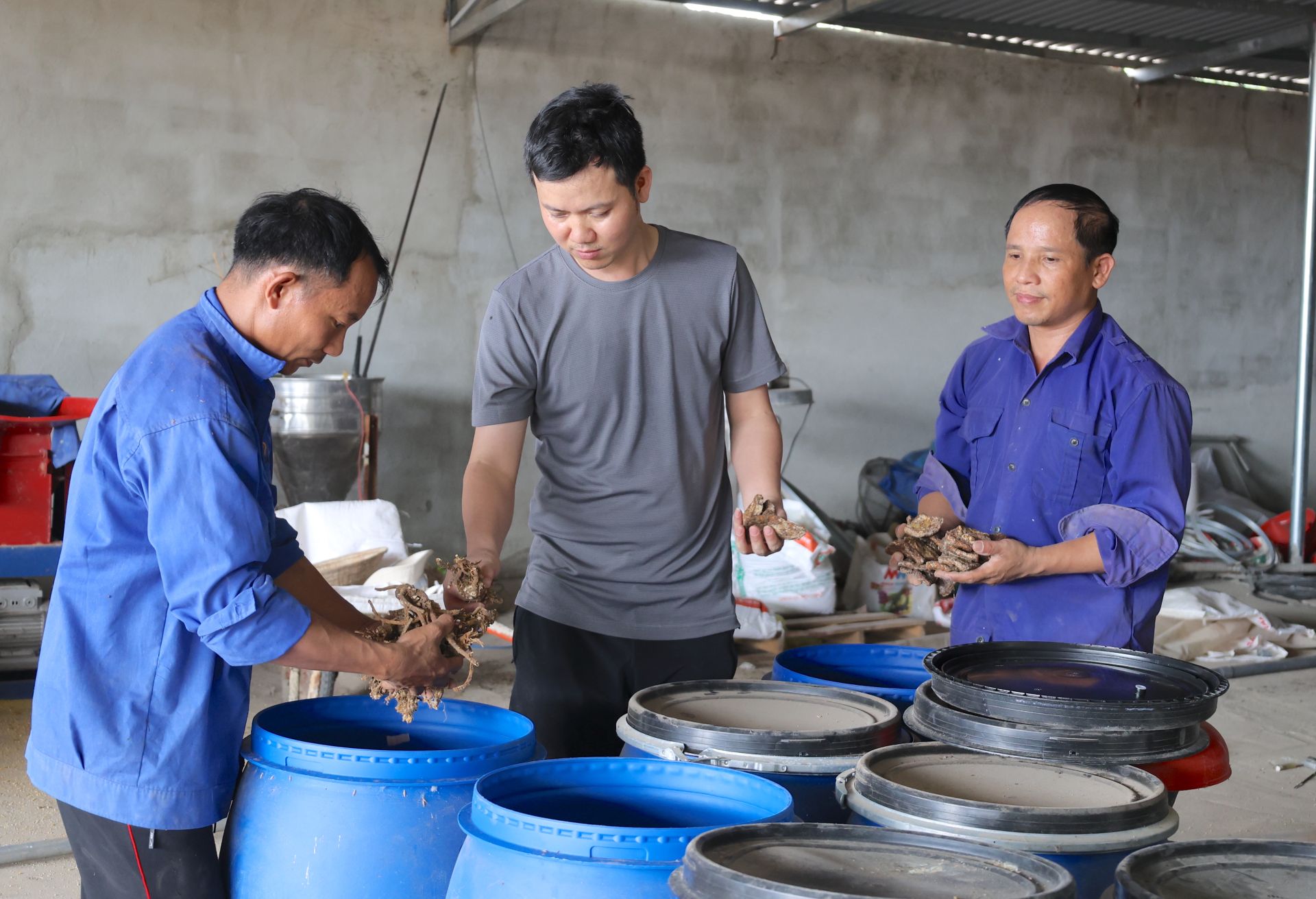

![[Photo] More than 17,000 candidates participate in the 2025 SPT Competency Assessment Test of Hanoi National University of Education](https://vphoto.vietnam.vn/thumb/1200x675/vietnam/resource/IMAGE/2025/5/17/e538d9a1636c407cbb211b314e6303fd)

![[Photo] Readers line up to visit the photo exhibition and receive a special publication commemorating the 135th birthday of President Ho Chi Minh at Nhan Dan Newspaper](https://vphoto.vietnam.vn/thumb/1200x675/vietnam/resource/IMAGE/2025/5/17/85b3197fc6bd43e6a9ee4db15101005b)
![[Photo] Prime Minister Pham Minh Chinh chairs meeting on science and technology development](https://vphoto.vietnam.vn/thumb/1200x675/vietnam/resource/IMAGE/2025/5/17/ae80dd74c384439789b12013c738a045)




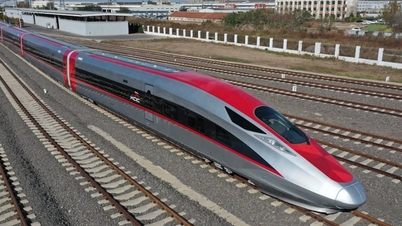



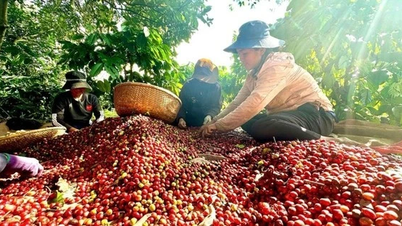







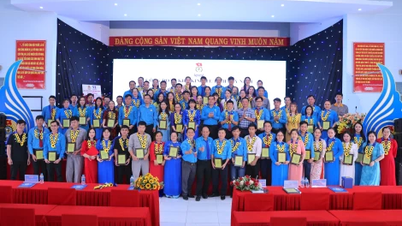

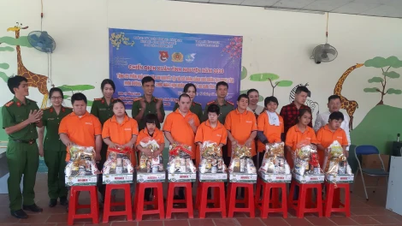
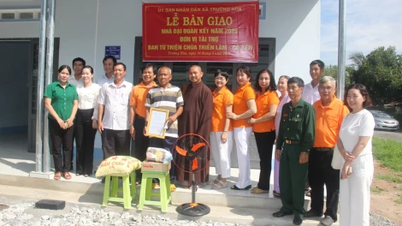
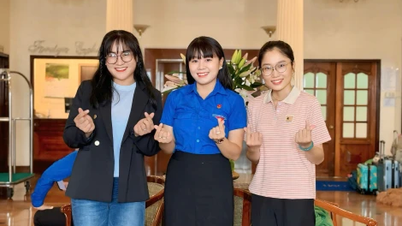
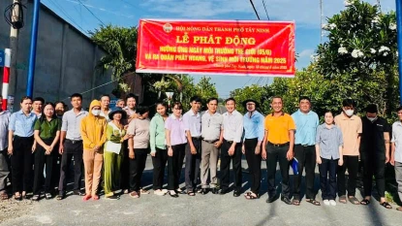
![[Photo] Nearly 3,000 students moved by stories about soldiers](https://vphoto.vietnam.vn/thumb/1200x675/vietnam/resource/IMAGE/2025/5/17/21da57c8241e42438b423eaa37215e0e)
























































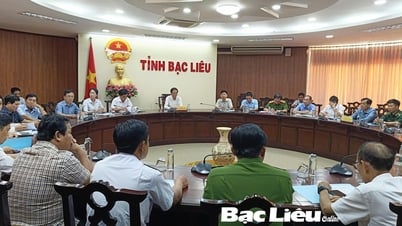












Comment (0)